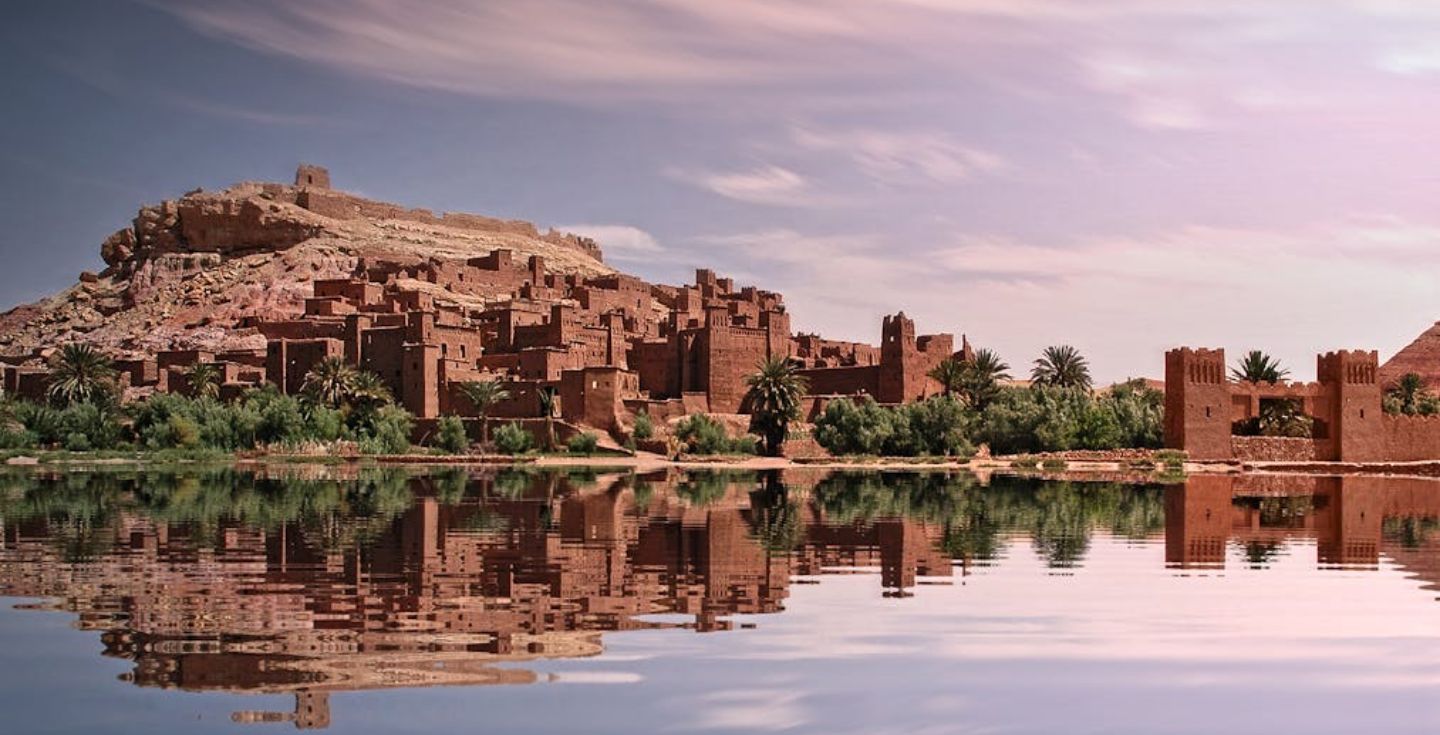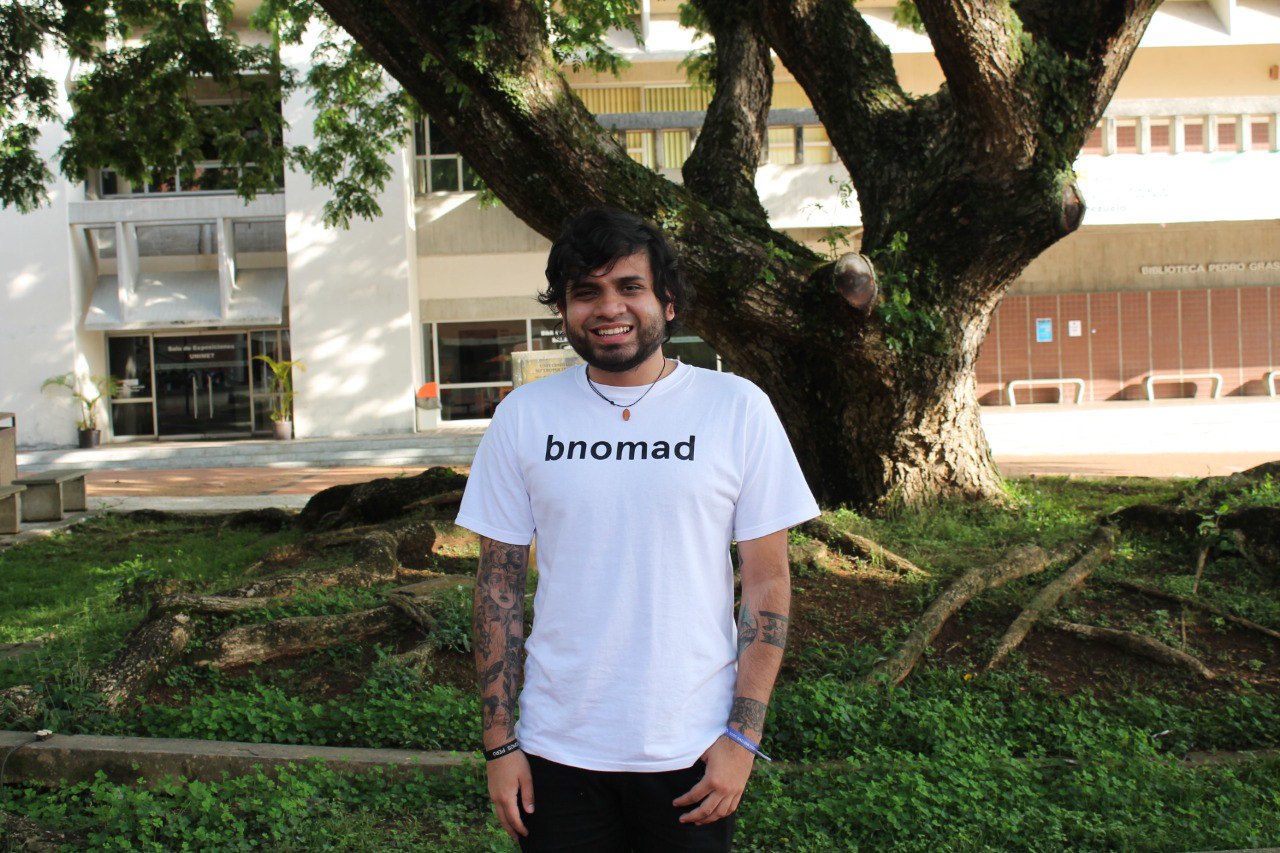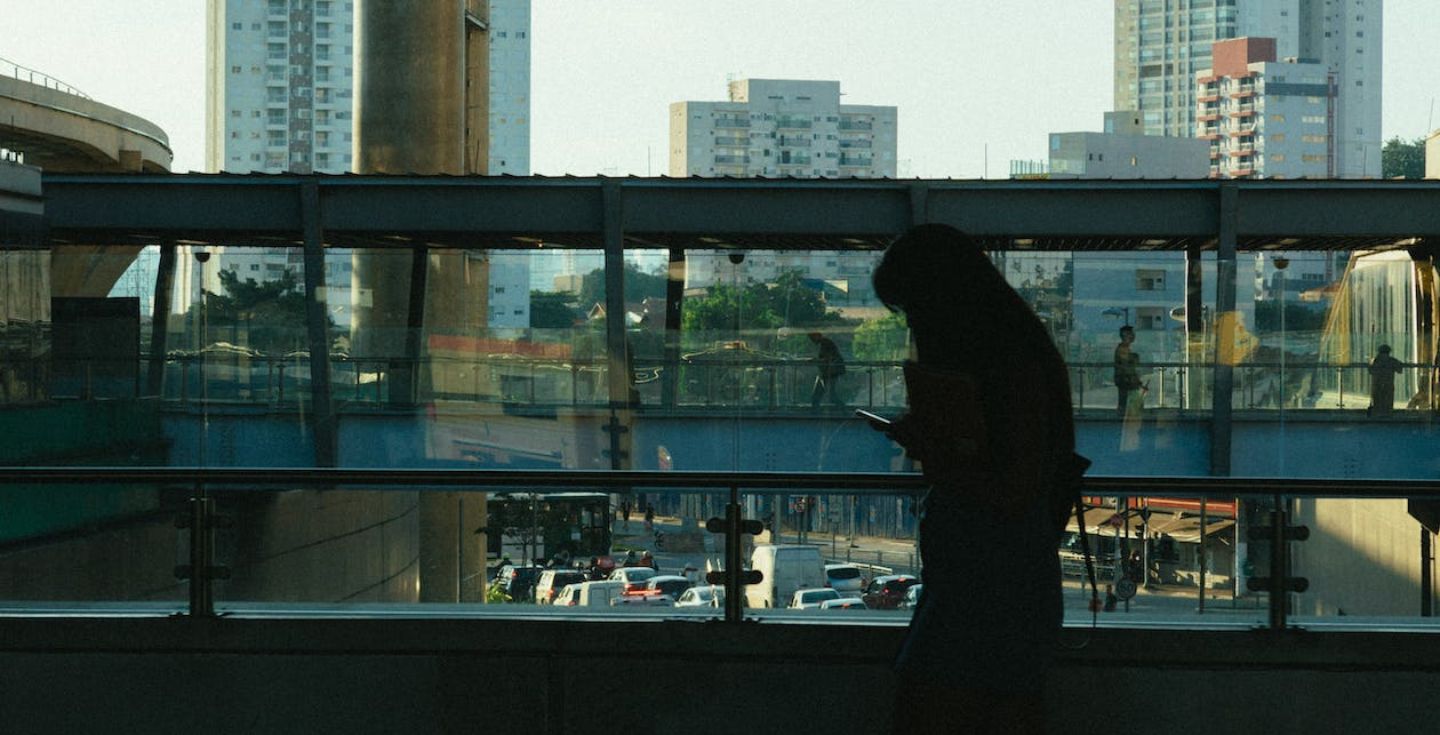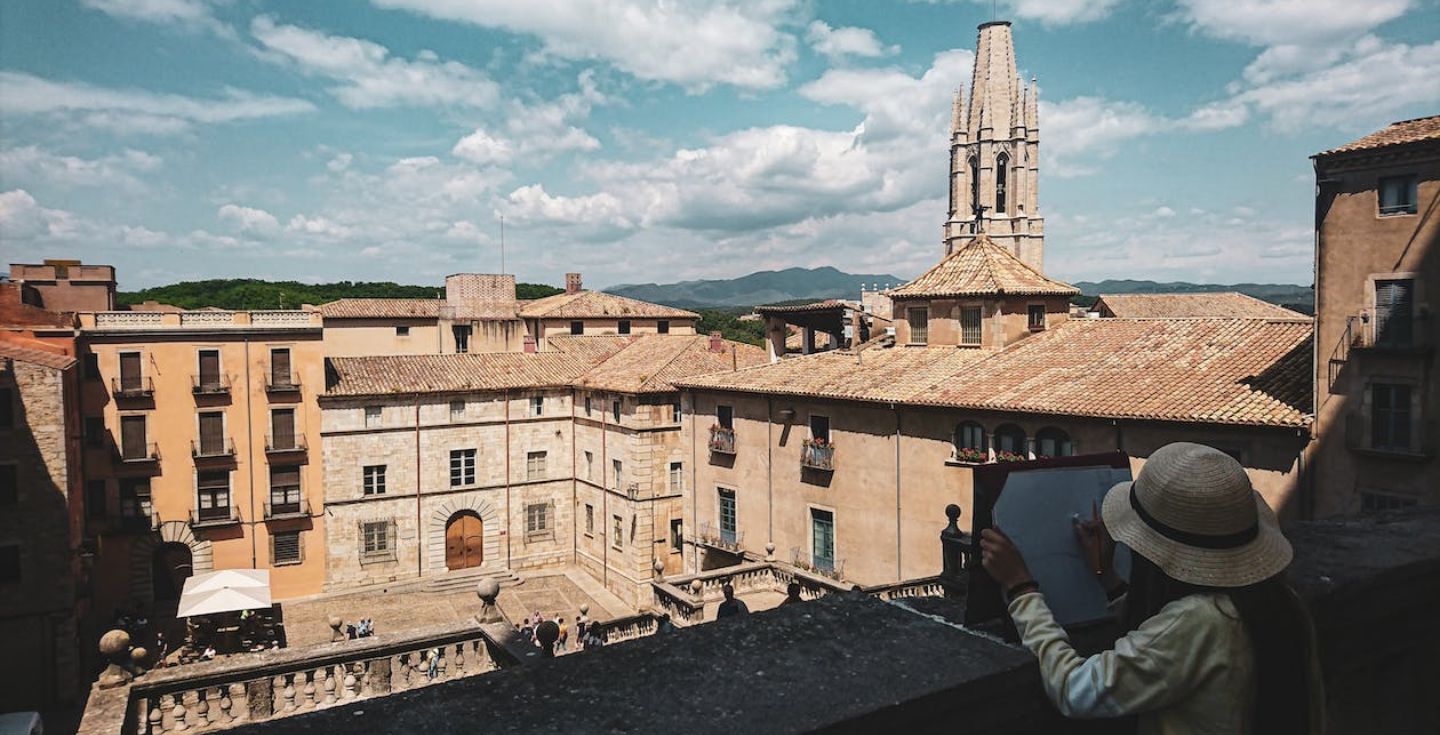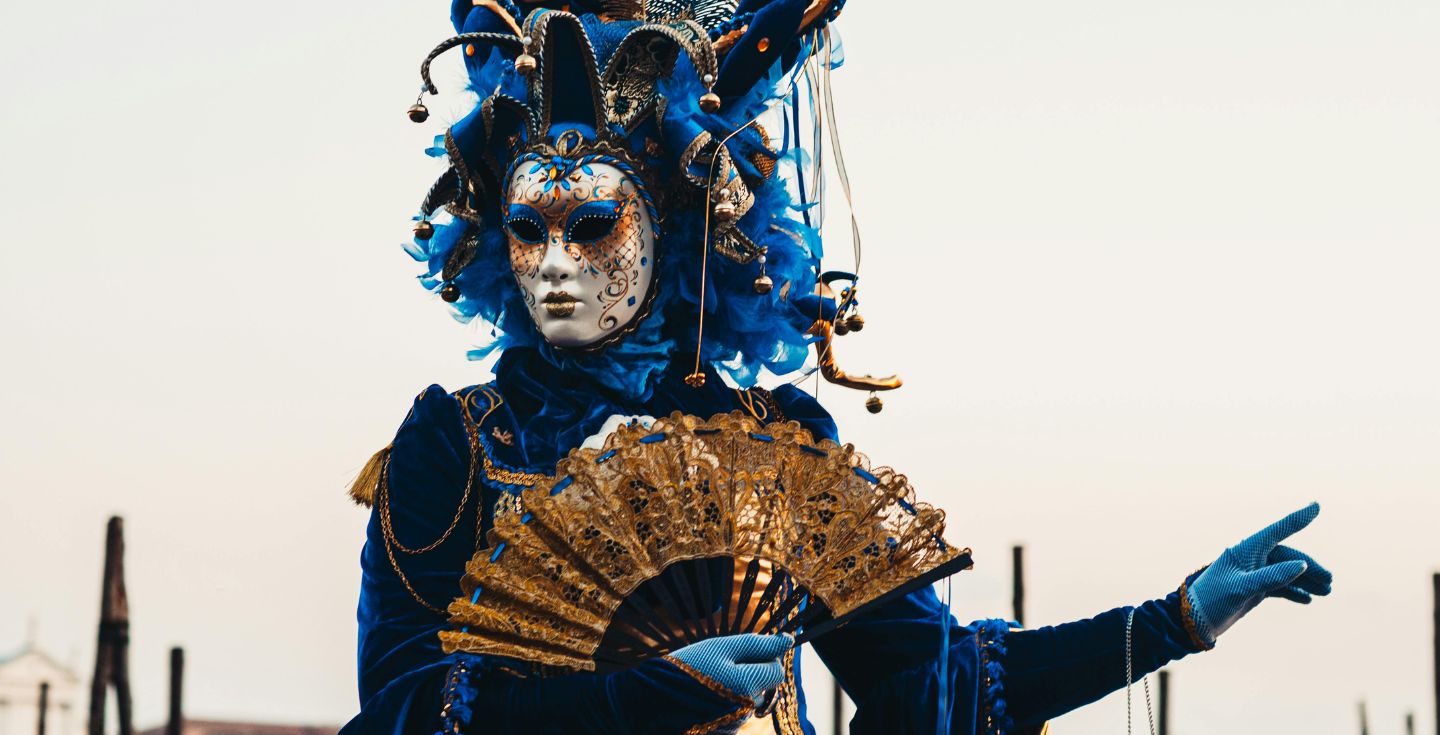Your complete Morocco packing list
Sharan explored Morocco’s souks, deserts, and mountains with just one suitcase and plenty of trial and error. Now, she’s sharing her best packing tips to help you get it right the first time.
I’ll be honest — packing for Morocco takes a little planning. The days can be hot, the nights surprisingly cold, and cultural norms require some thought too.
On my first trip, I packed all the wrong things. I brought extra shoes I never wore but forgot sunscreen for those long, sunny days. And let’s not even talk about how unprepared I was for chilly desert nights.
I’ve put together this Morocco packing list guide to help you avoid the mistakes I’ve made. It covers the essentials you’ll actually use for every part of your trip, from the medinas to the mountains.
Plus, I’ve added a downloadable checklist to make packing simple. Avoid the hassle of overpacking or leaving behind essential items.
Let’s get your Morocco packing just right!
Download your Morocco packing checklist
Download your free Morocco travel checklist before you start packing. It’s printable so you can keep it handy and tick items off the list as you put them in your bag.
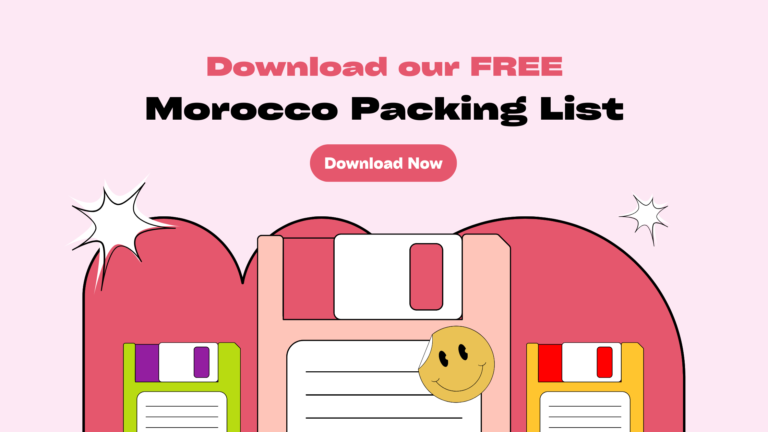
What to consider before packing for Morocco
Before filling up your suitcase, think about three key factors: Morocco’s climate, the activities you’ll be doing, and your airline’s luggage limits.
Climate and weather conditions
Morocco’s weather can vary dramatically depending on where and when you visit, so packing the right layers is key. Here’s a quick breakdown to help you prep.
Spring (March to May):
Spring in Morocco is mild and colorful, but the weather varies depending on where you go.
- Cities like Marrakech and Fez: Expect warm days around 68°F–77°F (20°C–25°C). Perfect for lightweight layers during the day, but mornings and evenings drop to 50°F (10°C), so a light jacket is a must.
- The Atlas Mountains: The temperature can hover around 50°F–59°F (10°C–15°C) during the day but dip below 40°F (4°C) at night. Bring a thicker layer if you’re planning hikes.
- The Sahara Desert: Days can heat up to 85°F (29°C), but the nights are much cooler, dropping to around 50°F (10°C). A scarf or shawl is handy for the sand and sun.
Summer (June to August):
Morocco’s summer can feel like two different worlds.
- Marrakech and Fez: Temperatures often hit 95°F–104°F (35°C–40°C). It’s a dry Moroccan heat, but you’ll need loose, breathable clothes, sunglasses, and sunscreen. Walking around during midday? Not recommended — plan for mornings or evenings.
- The Sahara Desert: Daytime highs can soar to 110°F (43°C), and the heat lingers into the night. Pack light, airy clothing, but don’t skip a wide-brimmed hat and hydration packs for desert excursions.
- Coastal areas like Essaouira and Casablanca: These cities are cooler, around 75°F–82°F (24°C–28°C), thanks to ocean breezes. A light sweater or long sleeves will come in handy, especially after sunset.
Fall (September to November):
Fall brings relief from the summer heat, making it an ideal time to explore.
- Cities like Marrakech, Fez, and Rabat: Daytime highs are around 75°F–85°F (24°C–29°C), but expect cooler evenings around 55°F (13°C). Pack layers so you can adjust as temperatures shift.
- The Atlas Mountains: Perfect for hiking, with daytime temps averaging 59°F–68°F (15°C–20°C). Nights, however, drop below 40°F (4°C), so a fleece or thermal jacket is essential.
- The Sahara Desert: Days are still warm, around 86°F (30°C), but nights dip sharply to 45°F (7°C). Bring warm layers for nighttime camping.
Winter (December to February):
Morocco’s winter is mild in some regions and frigid in others.
- Coastal cities like Tangier, Casablanca, and Essaouira: Days are mild at 59°F–65°F (15°C–18°C), but evenings are damp and chilly. A warm sweater and a rain-resistant jacket are good bets.
- Marrakech and Fez: Days are sunny and comfortable at 65°F (18°C), but temperatures can drop to 40°F (4°C) at night. Layering is key, especially if you’re out after sunset.
- The Atlas Mountains: Snow blankets the higher peaks, and temperatures can plummet to below freezing. Bring thermal layers, waterproof boots, and gloves if you’re planning any winter hikes.
- The Sahara Desert: Days remain pleasant at around 70°F (21°C), but nights can feel freezing, dropping to 32°F (0°C). A warm sleeping bag or heavy jacket is non-negotiable for overnight stays.
Activities and excursions
I thought I could pack the same clothes for every activity. Big mistake. Morocco’s adventures demand a little extra thought — trust me, I learned the hard way.
Here’s what worked for me during different activities and why it’s worth planning ahead.
- Desert adventures: Let me tell you, camel trekking in the Sahara sounds romantic until you’re halfway through the ride, realizing you didn’t dress for it. Long, breathable pants are a must — your legs will thank you. A lightweight scarf kept the sand out of my face, and when night fell, I couldn’t get into my fleece jacket fast enough. Desert nights are no joke; 40°F (4°C) feels freezing after a day in 90°F (32°C) heat.
- Hiking the Atlas Mountains: The Atlas Mountains taught me the art of layering. Mornings started chilly at 50°F (10°C), so I’d pile on a base layer, fleece, and jacket. By midday, I’d stripped down to a t-shirt as it warmed to 68°F (20°C). The trails were steep and rocky — if you’re not in good hiking boots, your feet will never forgive you. I also wished I’d packed a small backpack for snacks and water because those mountain views are best enjoyed with some sustenance.
- Exploring Medinas and Souks: Exploring Marrakech’s medina was an amazing sensory experience — until the cobblestones made my feet ache.
Sneakers with thick soles are your best bet. Modest clothing also goes a long way in helping you feel comfortable (and blend in). My go-to was a lightweight linen top and loose pants. Oh, and a crossbody bag? Essential. Pickpockets are rare but not unheard of, and having easy access to my wallet while haggling was a lifesaver. - Beach days and water sports: Essaouira’s breezy beach was heaven after the heat of Marrakech. I packed swimwear but also brought a cover-up because bikinis are fine on the sand but not so much elsewhere. Evenings were surprisingly cool—around 60°F (15°C) — so my lightweight sweater came in handy. When I tried surfing in Taghazout, I was glad someone warned me to bring a rash guard; the Atlantic can be chilly, even in summer.
- Hammam visits: Ah, my first Hammam experience. I didn’t realize I was supposed to bring my own scrub glove (kessa) and black soap, so I ended up borrowing from a kind stranger. Awkward. If you’re planning to visit one, pack these, plus a small towel and flip-flops. It’s an unforgettable experience, but being prepared definitely makes it more enjoyable.
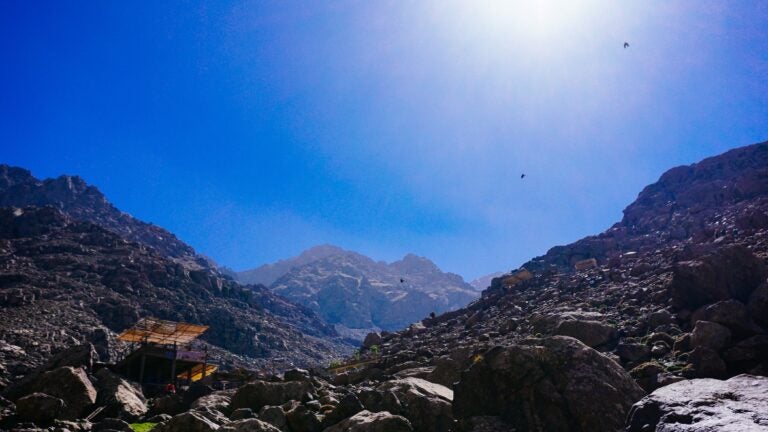
Luggage restrictions
Baggage size limits vary depending on the airline, route, and ticket class.
Most airlines allow checked baggage up to 23 kg, with dimensions around 158 cm (adding length, width, and height). However, some airlines, like Emirates, Qatar Airways, and Oman Air, allow more generous limits of 30-32 kg.
If you prefer having options, here’s a quick overview of baggage policies from popular airlines:
- Royal Air Maroc: Allows one carry-on up to 10 kg (55 x 40 x 20 cm). Checked bags usually range from 1-2 bags at 23 kg each, with a total size limit of 203 cm.
- Air France: Permits one carry-on up to 12 kg (55 x 35 x 25 cm). Economy-checked baggage typically allows one bag up to 23 kg with a 158 cm size limit.
- Lufthansa: Carry-on limit is 8 kg (55 x 40 x 23 cm). Checked baggage for Economy includes one bag up to 23 kg, with dimensions totaling 158 cm.
- Emirates: Allows one carry-on up to 7 kg (55 x 38 x 20 cm). Checked baggage limits vary with the fare, usually between 20-35 kg, and sizes ranging from 150-300 cm based on the route.
I always recommend checking your airline’s website a few days before departure — baggage policies have a way of shifting just when you’re not expecting it! After a few surprise check-in fees in the past, I now make this a ritual to avoid those last-minute stressors.
With your luggage restrictions in mind, it’s time to focus on what essentials to bring along.
| 📅 Planning an upcoming trip? Check out our Morocco travel guide, covering everything you need to know. |
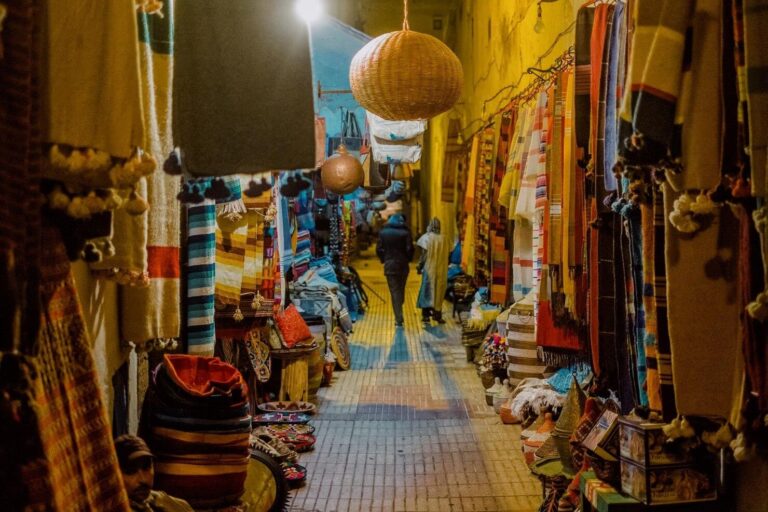
Must-have items for your trip to Morocco
Your Morocco adventure starts with the right essentials. From travel must-haves to items tailored for Morocco’s unique mix of climates and culture, here’s everything you’ll need to be prepared and comfortable wherever you go.
Essential documents
Here’s what you’ll need:
- Passport: Your passport should be valid for at least six months beyond your planned departure date from Morocco. Ensure it’s undamaged, as travelers with damaged passports may be denied entry.
- Visa (if required): Many nationalities, including UK, US, EU, and Canadian citizens, can enter Morocco visa-free for up to 90 days. However, if you’re from a country like India, China, Pakistan, or Nigeria, you’ll need to apply for a visa before your trip. Check with the Moroccan consulate or embassy to confirm your visa requirements.
- Travel insurance: It’s a good idea to have travel insurance that covers health, accidents, and theft during your stay. Keep a copy of your insurance policy and emergency contact numbers handy.
- Flight itinerary: Bring printed or digital copies of your flight bookings, as you may need to show proof of a return or onward journey.
- Accommodation proof: Keep hotel reservations or an invitation letter (if staying with friends or family) on hand. Some border officials may ask to see it.
- Financial proof: While not always required, recent bank statements showing enough funds can be useful if you’re asked about your stay plans.
- Passport photos: Carry a few extra passport-sized photos in case you need a visa or other permits during your trip.
- International driver’s license: If you plan to drive in Morocco, you’ll likely need an International Driver’s Permit along with your regular license.
- Vaccination records: Although Morocco doesn’t have specific vaccination requirements, carrying proof of routine immunizations (like MMR and hepatitis) is recommended. If you’re coming from a country with recent polio cases, bring a certificate for that as well.
- Travel itinerary: Have a simple outline of your trip, including contact information for your accommodations, in case you’re asked for details.
- Emergency contacts: Keep a list of important phone numbers, like embassy contacts, emergency numbers, and insurance hotlines.
- Copies of important documents: Store digital and physical copies of your passport, visa, and other essential documents in a secure spot separate from the originals.
Clothing essentials
Packing for Morocco means balancing the warm daytime weather, cooler evenings, and cultural expectations. Here’s a quick list to make sure you’re ready for anything.
| Clothing item | Quantity | Purpose |
| Lightweight shirts | 3 | For warm days, choose cotton or linen for breathability |
| Long-sleeve tops | 1-2 | For sun protection and cultural sites where modesty is appreciated |
| Lightweight pants / long skirt | 1-2 | Comfortable, modest options for exploring cities and cultural sites |
| Warm pants (e.g., jeans) | 1 | For cooler evenings, especially in fall or winter |
| Light sweater | 1 | Handy for cool evenings, regardless of season |
| Warm jacket | 1 | Essential if visiting in winter or for mountain/desert areas |
| Walking shoes | 1 pair | Comfortable for walking in medinas and on uneven city streets |
| Sun hat | 1 | Wide-brimmed for sun protection during the day |
| Lightweight scarf | 1 | Versatile for sun and dust protection, or to keep shoulders covered at cultural sites |
| Swimwear | 1 | Modest swimsuit for beach days or hotel pools |
| Rain jacket/poncho | 1 (optional) | Useful for fall/winter in coastal areas where rain is possible |
| ✈️ Essaouira, in my mind one of the best places to visit in Morocco, is perfect for coastal getaways. Its breezy charm is just one of many highlights. Before you plan your itinerary, check out these best places to visit in Morocco. |
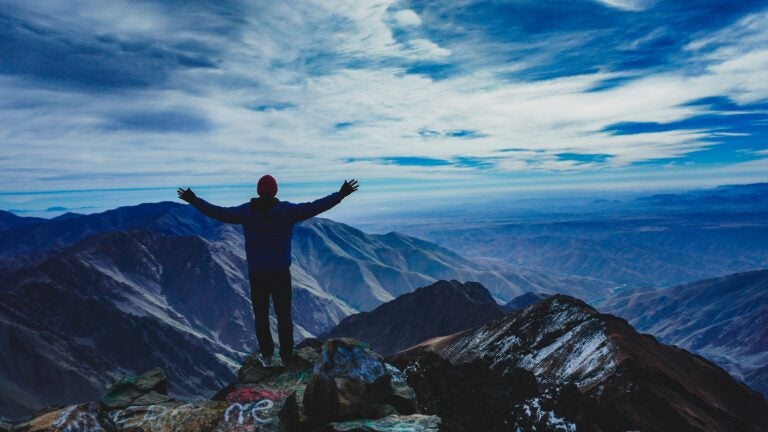
Footwear
You’ll be walking — a lot. From exploring souks to visiting historical sites, the cobblestone streets and uneven pathways demand shoes that can keep up.
- Sneakers or cushioned flats: I wore lightweight trainers that didn’t take up much space and were perfect for navigating medinas and cobblestone streets. Good arch support made all the difference.
- Hiking boots: When I hit the Atlas Mountains, my sturdy hiking boots with ankle support and a grippy sole kept me steady on rocky and slippery trails.
- Sturdy leather sandals: For coastal towns like Essaouira, I loved my comfortable leather sandals. They worked great for casual dinners and quick trips to the beach.
- Closed-toe shoes: Camel trekking in the Sahara taught me that closed-toe shoes are non-negotiable. Sand and sunburn were no match for them.
- Slip-on shoes: Visiting mosques and hammams was easier with slip-ons. They were also super handy for the airport and quick errands around town.
Toiletries and personal essentials
The Moroccan climate, with its strong sun and dry air, along with the diverse settings calls for a bit of extra preparation.
After trial and error (and a last-minute hunt for sunscreen in the souks), I’ve got the essentials you’ll want to pack for Morocco.
- Sunscreen: Morocco’s sun doesn’t hold back, especially in the desert and mountains. I brought SPF 50 and applied it religiously — missing a spot during a Sahara trek left me with a sunburn I won’t forget. Don’t skip it, and pack a travel-sized bottle for your day bag.
- Moisturizer: The dry air in Morocco isn’t kind to your skin. I used a rich, travel-sized moisturizer every night. If you’re prone to dryness, a face mist or hydrating serum can be a great addition too.
- Lip balm: Dry, windy days can leave your lips chapped. A hydrating lip balm with SPF kept mine protected and comfortable.
- Hand sanitizer: Medinas are vibrant but not always the cleanest. Whether I was browsing markets or snacking on street food, hand sanitizer was an absolute must. It’s also handy for places where soap isn’t guaranteed, like rural rest stops.
- Wet wipes: Great for a quick freshen-up on the go, especially on desert treks or long city excursions. Pack a small, resealable pack — they’re light and endlessly useful.
- Deodorant: With all the exploring you’ll be doing, deodorant is a must to stay fresh and comfortable.
- Toothbrush and toothpaste: A basic but easily forgotten essential — having a travel-sized set kept my bag light.
- Body wash or soap: Many riads provide soap, but it’s often basic and drying. I brought a small bottle of my favorite body wash, which felt like a little luxury after a long day.
- Travel-sized shampoo and conditioner: Some accommodations offer shampoo, but not all. I brought my own and was glad I did — the water can be hard on your hair. The conditioner, especially, helped with dryness after desert and mountain adventures.
- First aid basics: A few band-aids, antiseptic wipes, and pain relievers are handy for minor scrapes or blisters from walking. Blister bandages, in particular, saved me after a long day exploring Marrakesh. Pain relievers and motion sickness tablets also earned their place in my bag, especially on winding mountain roads.
- Laundry soap (optional): If you’re packing light, a small packet of laundry detergent is great for hand-washing clothes during longer stays.
- Toilet paper or tissues: Public restrooms often lack toilet paper, so having a small, portable roll or a pack of tissues is a lifesaver. I kept a pack in my day bag at all times — it saved me more than once, especially in rural areas and medinas.
- Insect repellent: While mosquitoes aren’t a big problem. But having insect-repellent wristbands is useful if you spend time in rural or coastal areas.
Electronics
Packing isn’t quite complete without a few essential electronics to keep you charged, connected, and camera-ready. Here’s what I recommend:
- Universal power adapter
- Portable charger
- An eSIM
- Camera or GoPro
- Headphones
A universal power adapter is first on the list since Morocco uses Type C and E outlets with a 220V voltage.
Having a universal adapter means you can keep everything charged and ready, from phones to cameras. I also highly recommend a portable charger for those long days of sightseeing.
An eSIM has become one of my travel essentials. I can’t count the times I’ve scrambled to find WiFi, connected to my pocket WiFi, and fussed with finding local Moroccan SIM cards or data roaming options in Morocco.
With Holafly’s eSIM Morocco, you’re all set before you even land. Just activate it, and you’re ready to use maps, translations, and stay in touch without a hitch.
I recommend this Morocco eSIM option for easy connectivity right from the start and paying under $3.49 per day for a 14-day plan with unlimited data!
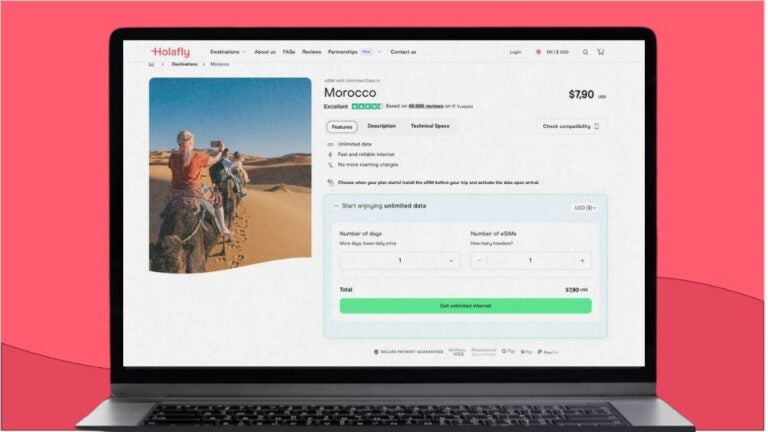
Packing list for different activities in Morocco
As much as I’d love to toss my whole closet into a suitcase, Morocco’s adventures call for a little editing. Here’s what actually needs to make the journey — essentials for every trek, souk, and camel ride.
Outdoor adventures
Depending on your plans, here’s a list of essentials to make each adventure comfortable and safe.
Hiking:
- Hiking boots or trail shoes
- Lightweight, waterproof jacket
- Refillable water bottle or hydration pack
- Trekking poles (especially helpful in the Atlas Mountains)
- Lightweight, layered clothing (for fluctuating mountain temperatures)
Water activities:
- Water shoes
- Quick-drying clothing
- Small dry bag for valuables
- Compact microfiber towel
Exploring nature reserves:
- Binoculars (for wildlife spotting)
- Notebook for jotting down observations
- Lightweight daypack to carry your essentials
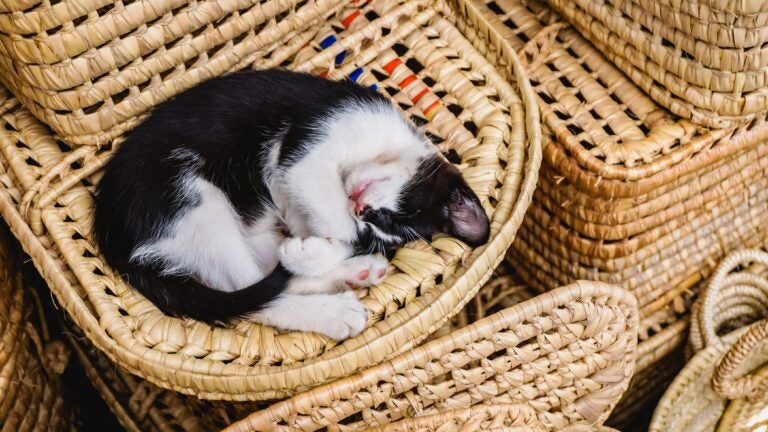
| 💡If you want to pack light, consider renting gear for certain activities. Many popular spots in Morocco offer rentals for items like trekking poles or water sports equipment, so you can keep your luggage manageable and still be fully prepared for any adventure! |
City and cultural visits
Morocco’s cities come with a deep cultural history that values modesty. Covering shoulders and knees is especially important in religious areas, where it’s expected. I found that blending in a bit helped me feel more connected to each place.
Here’s what I recommend for exploring Morocco’s urban and cultural sites:
- Crossbody bag for secure, hands-free storage
- Lightweight scarf (for covering the head in religious sites)
- Notebook for jotting down insights or recommendations
- Modest clothing (long sleeves, pants, or skirts covering knees)
Dining and evening events
From rooftop dinners under the stars to group meals at a cozy riad, the setting often calls for thoughtful layering and a touch of style.
Here’s what I recommend packing for evening meals:
- Light jacket or shawl for cooler evenings or outdoor dining. A shawl doubles as a modest cover-up if needed.
- Small bag or clutch. Perfect for carrying essentials like cash, a phone, and lip balm without adding bulk. My crossbody bag transitioned seamlessly from day to night.
- Dressier outfit. Most Moroccan restaurants and riads aren’t formal, but a smart-casual outfit (like a blouse with tailored pants or a lovely dress) felt appropriate. You’ll blend in better than with ultra-casual tourist gear.
- Comfortable, stylish shoes. Rooftops and cobblestone streets don’t mix with heels. I brought a pair of flats with a little polish — comfortable enough to walk in but dressy enough to look the part.
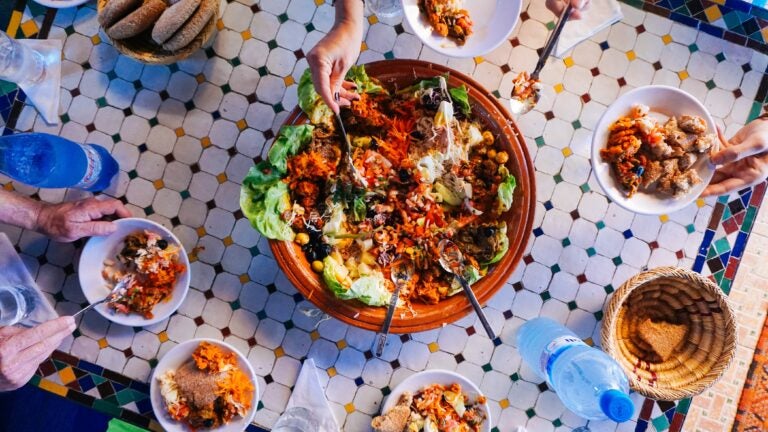
| 💡Morocco’s evenings can get chilly, even after a warm day. A light layer, like a shawl, is perfect for breezy courtyards or open-air spots, especially in winter. |
What not to bring to Morocco
Packing smart for Morocco also means knowing what not to pack. Here’s a breakdown of prohibited or restricted items, along with things you’ll likely find unnecessary once you’re there.
Prohibited or restricted items
Moroccan customs regulations prohibit or restrict the importation of certain goods. To avoid complications at the border, ensure you do not bring the following:
- Firearms and ammunition: Strictly prohibited without prior authorization.
- Explosives and fireworks: Completely banned, including small fireworks.
- Drones: Not allowed without special permission from Moroccan authorities.
- Pork products: Importing pork is restricted due to local dietary laws.
- Certain medications: Some prescription drugs, especially those containing codeine, require a doctor’s note or prior approval.
- Plants and seeds: Bringing in certain plants or seeds may require special clearance and is generally discouraged to prevent the spread of pests.
- Pornographic materials: Banned under Moroccan law.
Unnecessary items
After my own overpacking mishaps, I learned what not to bring. Here’s what you can leave behind to save space and keep things simple.
- High heels. Cobblestone streets and uneven paths make high heels a nightmare. Even for evening outings, opt for stylish flats or low wedges instead. My heels stayed untouched in my bag the entire trip.
- Excessive electronics. I thought I’d use my tablet and portable speaker, but they just added weight to my bag. A phone and a lightweight power bank were all I really needed. Skip bulky gadgets unless they’re essential for work or photography.
- Too many clothes. It’s tempting to pack clothes for every occasion, but Morocco is all about practical layering. I overpacked tops and pants, only to realize I could re-wear outfits without issue. Stick to versatile, mix-and-match items.
- Expensive jewelry. Leave anything flashy or valuable at home. It’s unnecessary and can draw unwanted attention. I brought one pair of simple earrings and a small bracelet, which were more than enough.
- Beach towels. Bulky towels take up too much space. If you’re planning beach time or a hammam visit, most accommodations and bathhouses provide towels. A compact microfiber towel is a great alternative if you feel you need one.
- Hair dryers. Most riads and hotels in Morocco provide hair dryers, and honestly, the dry air made my hair routine simpler. If you’re picky about your tools, bring a compact travel-sized dryer instead of your full-sized one.
- Western toiletries in bulk. You don’t need to bring a year’s supply of shampoo or soap. Moroccan pharmacies are well-stocked with international brands, so anything you forget can easily be found locally.
- Thick winter coats. Unless you’re spending the entire trip in the snowy Atlas Mountains, skip the heavy coat. Layering with lightweight thermals and a warm jacket is more than enough for cooler months.
- Overly revealing clothing. Morocco is conservative, and while you’ll see plenty of tourists, dressing modestly shows respect for the culture. I left my short skirts and tank tops at home — they wouldn’t have been practical or appropriate.
Wrapping up your Morocco packing list
Packing smart means balancing the essentials for comfort, respect for local customs, and a touch of versatility for Morocco’s varying climates.
Remember to keep your layers light, bring that all-important scarf, and skip anything unnecessary.
Don’t forget one of my travel must-haves: Holafly eSIM Morocco — it’s the easiest way to stay connected, access maps on the go, and keep your loved ones updated on your journey.
Ready to start packing? Download the printable checklist for a quick, no-stress reference, and get set to dive into the adventure that is Morocco!





 Language
Language 


















 No results found
No results found






